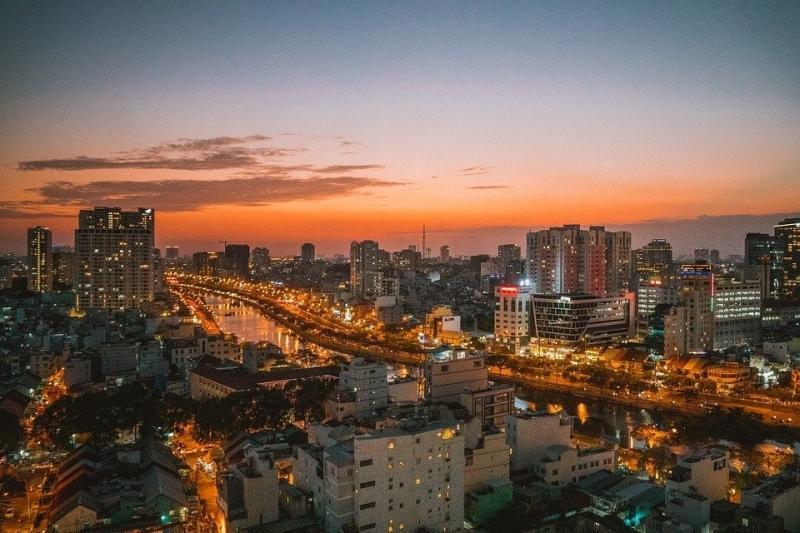

If you’re looking to buy a business in Vietnam, you have come to the right place for proper guidance on that. Due to its economic growth, young population, abundant natural resources, and strategic location, Vietnam poses as one of the most attractive locations for foreign investors in Southeast Asia.
However, buying a business in Vietnam is not a walk in the park, and involves considering many factors that would help you make the best decision. In this article, we will be sharing some of the top things that you should consider before buying a business for sale in Vietnam. These are:
The Business Type and Industry
With a diverse and dynamic economy, Vietnam boasts of many business sectors with opportunities for growth and profitability. You should consider the one you wish to invest in before going ahead to buy a business in Vietnam. Some of the most promising sectors include:
- Fintech: Digital financial services like payments, lending, wealth management, and blockchain have a sizable and expanding market in Vietnam. Vietnam’s fintech industry size was assessed at $9 billion in 2020 and is anticipated to reach $18 billion by 2025, per a report by Google, Temasek, and Bain & Company.
- E-commerce: With online retail sales expected to reach $15 billion in 2020 and a compound annual growth rate (CAGR) of 29% from 2020 to 2025, Vietnam is one of the region’s fastest-growing e-commerce markets. The e-commerce industry is propelled by rising smartphone use, rising internet penetration, and consumer preferences for ease and variety.
- Energy from renewable sources: Vietnam has a strong potential for the development of renewable energy, particularly in solar, wind, and biomass. By 2030, the nation wants to boost the proportion of renewable energy in its power mix from 10% to 15%. In addition, the government has implemented a number of laws and incentives, including land use rights, tax exemptions, and feed-in tariffs, to assist renewable energy installations.
- Tourism: Due to its numerous attractions, beautiful scenery, and rich culture, Vietnam is a well-liked tourist destination. In 2019, the tourist industry generated 9.2% of the nation’s GDP and employed 2.26 million people. The Covid-19 outbreak severely impacted the industry in 2020 and 2021, but once travel restrictions are relaxed, it is anticipated to rebound and expand.
The Legal Framework and Regulations
Secondly, you need to consider the legal framework and regulations governing the business environment. In recent years, Vietnam has made some significant reforms, with the aim of improving its business climate and attracting more foreign investors.
Some of these reforms include a number of free trade agreements (FTAs) with significant partners, such as the Comprehensive and Progressive Agreement for Trans-Pacific Partnership (CPTPP), the EU-Vietnam FTA (EVFTA), and the UK-Vietnam FTA (UKVFTA), which grant preferential access to sizable markets and lower tariffs and non-tariff barriers.
Furthermore, it has also simplified its procedures for business registration, custom clearance, tax administration, and dispute resolution, making these operations as seamless as possible for business owners and potential business owners.
Irrespective of these, there are still some risks and challenges that you should still be aware of when buying a business in Vietnam. Some of these include:
- Restrictions on foreign ownership: The amount of foreign ownership that is permitted may be capped, depending on the sector and type of business. For instance, foreign investors are only permitted to acquire up to 30% of domestic commercial banks or up to 49% of publicly securities companies (applied for foreign individual investors).
- Protection of intellectual property: Although Vietnam has strengthened its IP law and ratified a number of international IP treaties, including the Berne Convention and the Paris Convention7, IP enforcement is still lax and uneven.
IP infringement, counterfeiting, piracy, and cybercrime cases are still occurring and could harm your company’s operations and reputation. You should act quickly to defend your intellectual property rights by registering your domain names, trademarks, patents, and other intellectual property with the appropriate authorities.
- Corruption and bureaucracy: Corruption is still a major issue in Vietnam despite the government’s efforts to reduce it and increase openness. Vietnam had a score of 36 out of 100 in the Corruption Perceptions Index 20208 from Transparency International, placing it 104th out of 180 nations (where 0 is highly corrupt and 100 is very clean).
When conducting business in Vietnam, corruption can raise your expenses, delays, dangers, and uncertainties. You must be well informed of and carefully adhere to Vietnam’s anti-corruption legislation and regulations. Additionally, you must to abstain from any immoral or unlawful activities, such as fraud, bribery, and kickbacks.
Market Conditions and Competition
The next thing you may want to consider before buying a business in Vietnam is the market conditions and competition you’re likely to face in running the business. Vietnam has a very large and young population of nearly 100 million people, 70% of which are under the age of 35.
Also, the country has a rising middle class estimated to be around 33 million people in 2020, a figure projected to reach 44 million by 2030. These factors make the market in the country being a large and growing one, creating a strong demand for various goods and services, especially in urban areas.
However, the large population also means that the market is highly competitive, with many local and foreign players vying for the market share. That being said, a thorough market research and analysis is needed to better understand the needs, behaviors, and preferences of your target customers.
You should also try to understand the strength, weaknesses, opportunities, and threats of your competitors. Furthermore, developing a unique value proposition and a competitive strategy will help you stand out from your competitors and also gain a loyal customer base.
Financial Performance and Valuation
The financial performance and valuation of the business you intend to purchase in Vietnam should be the fourth element you take into account. The company’s financial records and statements, including the income statement, balance sheet, cash flow statement, tax returns, and audit reports, should be reviewed.
Additionally, you should confirm the company’s assets, liabilities, revenues, costs, profits, and cash flows. Any anomalies or warning signs that might point to theft, poor management, or unreported liabilities should be investigated.
The business should also be valued to determine its fair market value using one of the different methods available, such as the discounted cash flow method, the market-based method, or the asset-based method.
You should select the method that is most appropriate for your target industry and business. You should also take into account various factors that may affect the value of the business, such as its profitability, risk profile, industry trends, and market conditions.
Due Diligence and Negotiation
The fifth factor to think about is the negotiating and due diligence process you will go through when purchasing a business in Vietnam. The term “due diligence” refers to a thorough research and verification of the business’s legal, financial, operational, and strategic components.
This crucial step can help you prevent unpleasant shocks or disagreements later on by ensuring that you are making an informed decision. To help you with the due diligence process, you should use professionals such as brokers, lawyers, accountants, consultants, and consultants.
An agreement on the terms and circumstances of the sale is reached through negotiation. It entails haggling over a number of problems, including the cost, the method of payment, the completion date, warranties, indemnities, and contingencies.
Plan ahead for any potential circumstances or problems and create a concise, realistic bargaining approach. Throughout the bargaining process, you should also keep open lines of communication with the seller and their counsel.
How Can We Help? – Company Secretarial Service
When purchasing a business for sale in Vietnam, Premia TNC is a consulting company that may assist you with a number of corporate services, including:
- Legal and regulatory support: We assist you with contracts, ownership transfers, due diligence, and compliance.
- Financial and accounting services: We also render services in finance and accounting including financial statements, tax reports, tax planning, and bookkeeping.
- Operational and strategic support: We can assist you with a bank account, a visa, a trademark, a license, and market expansion. Operational and strategic support.
- Services for digital marketing: They may assist you with Google Ads, social media, content, and your website.
We have locations in 11 cities and 9 nations, including Vietnam’s Hanoi and Ho Chi Minh City. We also have over 6,000 clients across a range of industries, with more than 20 years of experience. Our group of qualified experts as well as a network of associates and partners provide a free consultation with no obligations or additional fees.
Conclusion
Irrespective of the high rewards and profits that can be gotten from buying a business in Vietnam if done rightly, it also involves many challenges and risks that can easily turn the sweet experience to a sour one.
However, by taking note of the factors listed above and following the steps, your chances of finding and buying a suitable and profitable business for sale in Vietnam is greatly increased.



















